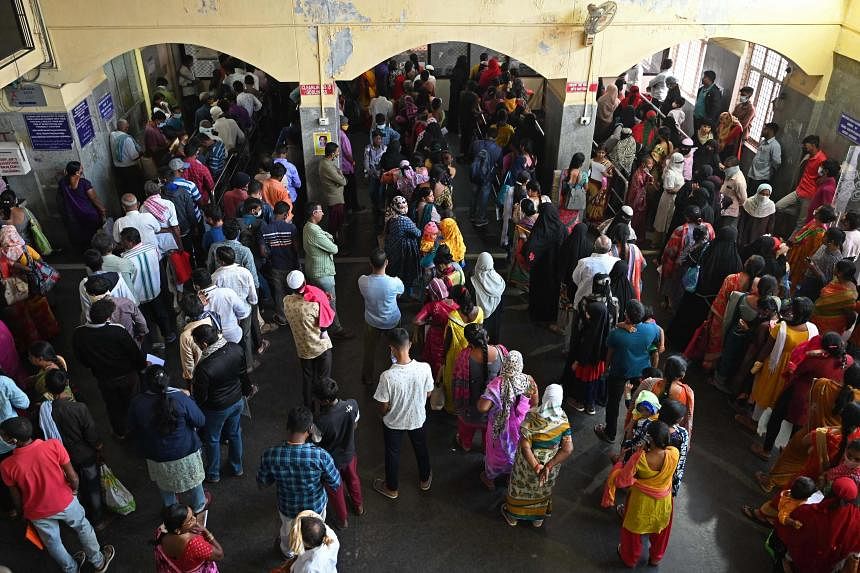

NEW DELHI – Since December, a mysterious flu bug has been going around in India, with those affected complaining of persistent cough and weakness.
Now the Indian Council of Medical Research (ICMR) has identified a specific strain of influenza – a subtype of H3N2 – which has been causing the spike in cases.
Doctors say the strain appears to be more virulent this season.
“This subtype appears to cause more hospitalisations than other influenza subtypes,” said the ICMR last Friday.
According to the ICMR, among those hospitalised, 92 per cent had fever, 86 per cent cough and 27 per cent breathlessness. Ten per cent needed oxygen and seven per cent required intensive care unit care.
According to the Indian Medical Association (IMA), a national voluntary organisation of physicians, the cough can persist up to two weeks.
While doctors say that the influenza strain is not life-threatening except in extreme cases, it is also leading to respiratory issues in some patients.
Singapore, too, has this influenza strain. According to the weekly infectious diseases bulletin for the week of Feb 19 to 25 from the Ministry of Health, of the 96 specimens tested positive for influenza in January, 37 had influenza A(H3N2).
In India, cases are being reported from all major metro cities, including Delhi and Mumbai. The southern Indian state of Andhra Pradesh has even started checking door to door to detect the bug early.
Symptoms include diarrhoea, chills, fatigue, body and muscle aches, loss of appetite and dry cough. Some patients even suffer from conjunctivitis.
”There are two phases of the illness – the acute phase which lasts for five to seven days, and a prolonged phase, which actually results in a prolonged cough, wheezing and mild body ache. We have never seen anything like this. There are people being admitted to the intensive care unit,” Dr Vivek Nangia, the principal director and head of pulmonology at Max Super Speciality Hospital in Delhi, told The Straits Times.
He added that different strains of influenza were already circulating in the country.
In India, the influenza virus usually peaks during the monsoon season – which runs from June to September – and once again from November to February, depending on the region.
In Tamil Nadu, for instance, November to January is considered the flu season. But Chennai-based doctor Koushik Muthu Raja M., a professor of respiratory medicine at Sri Ramachandra Medical College and Hospital, said they are still getting 10 to 20 cases per day.
“Post-Covid-19, there is low immunity, which has caused more people to get this virus. It is also more virulent this time,” said Dr Muthu Raja.
“Most of them are not severe or life-threatening. But it disturbs day-to-day activities.”
Some experts said the virus had also mutated, resulting in more persistent symptoms.
“H3N2 is a type of influenza virus, which we see every year during this time of the year. But it is a virus which mutates over time called antigenic drift,” Dr Randeep Guleria, former director of the All India Institute of Medical Sciences in New Delhi, told Indian media.
A drift consists of mutations in the genes of influenza viruses.
The IMA said that those most susceptible are those aged below 15 and above 50, and has asked people to avoid “the indiscriminate use of antibiotics”.
In India, there is rampant overuse of over-the-counter antibiotics, according to a Lancet study in 2022 that warned of increasing antibiotics resistance.
The virulent bug comes as India is seeing a steady decline in Covid-19 cases since 2022. On Monday, there were 2,970 active cases, according to Health Ministry data.
When Ms Sarita Sinha, 70, fell ill a week ago, she thought she had got Covid-19 again, but the test was negative. But now she has more symptoms than when she had Covid-19 in 2022.
The doctor prescribed nebulisation for her chest congestion.
“I have never experienced this kind of flu,” she said. “I am feeling very weak.”
- Additional reporting by Lee Li Ying

